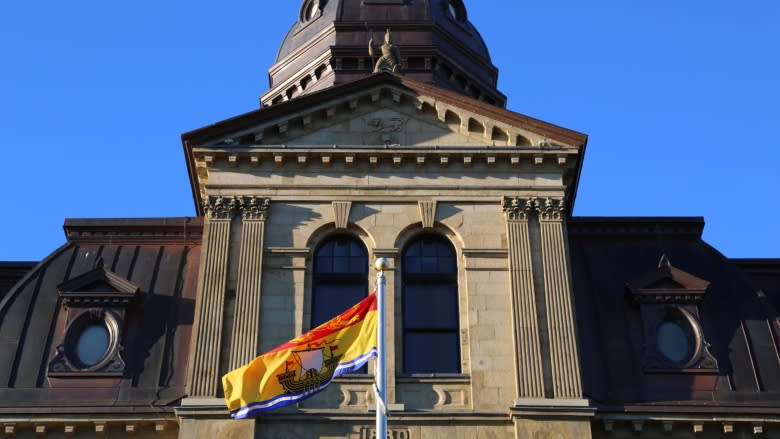Political parties to get financial incentive to run female candidates
The Gallant government is going to change the way political parties are subsidized by taxpayers to encourage them to recruit more women as candidates in provincial elections.
The per-vote funding that parties receive based on their last election result will be 1.5 times higher for the votes cast for their candidates who are women.
"Those who do a good job at it and get results will be rewarded, and hopefully that will continue the cycle of them making even more investments in their time and effort to have women as candidates," Premier Brian Gallant told reporters.
The per-vote subsidy boost creates a double incentive: not only will parties get more funding if they have more women as candidates, it will also be in their interest to have those women run in ridings where the party has a chance to win, because that will yield more votes.
Beth Lyons of the New Brunswick Women's Council said that in the past, some parties have boosted the number of women running for seats. but they had those women running in ridings where the party has little chance of winning.
Gallant agreed with that.
"This will encourage the parties to run women where they'll get a lot of votes," he said. "Hopefully that will translate into them winning."
$700,000 in pool
After every election, a pool of money of about $700,000 is distributed to registered political parties based on their share of the vote.
The bill won't increase the overall pool but will shift the allocation around, making votes for women candidates worth 1.5 times as much as those for men.
There are eight women MLAs in the current legislature: four Liberals and four Progressive Conservatives, out of a total of 49 members.
The Liberals have promised to have women make up half their candidates in the 23 non-Liberal held ridings in the next election.
"We clearly have a problem" with getting women elected, Gallant said. "There have been moments in time when it's been horrendous. It's clearly not acceptable."
'Fly-by policy,' say PCs
But Progressive Conservative MLA Dorothy Shephard had a strong first reaction against the bill, calling it "a fly-by policy" that doesn't provide incentives directly to candidates who are women.
"There's nothing here that's going to encourage women to step up, to find daycare, to learn more about politics, to put themselves out there for the actual vote," she said. "This is money that Brian Gallant is going to put in the Liberal coffers."
Shephard couldn't explain, however, why the change would financially benefit the Liberals more than other political parties.
"They want to look good," she said.
Lyons said it's true there are many reasons why women hesitate about running for office, but the funding change would give parties an extra incentive to eliminate some of those barriers.
"Political parties might have to start thinking about that and then it becomes more appealing for women," she said.
Shephard wouldn't say the PC opposition would vote against the bill. She said there may be "no reason to not" tweak the funding formula as long as there were other measures, too.
But she said her party will come up with its own proposals to increase the number of women candidates. She said more daycare availability would make it easier for women to run in elections.
The bill is based on a recommendation by an independent commission on electoral reform, which released its report earlier this month.
Gallant called the idea "innovative and thoughtful" but said if it doesn't have the desired effect, a future government can always change it.



